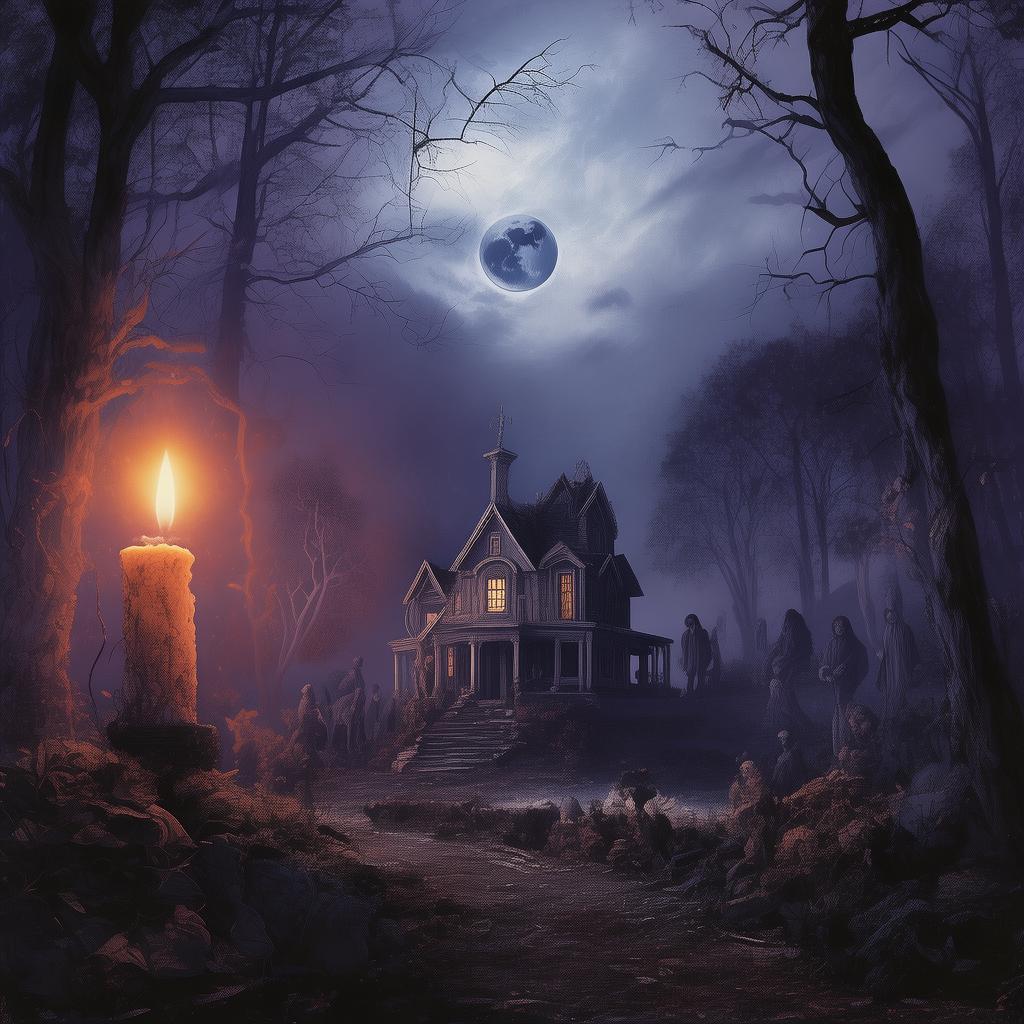The Goodman's Phantom's Paradox
The neon lights flickered above the darkened alley, casting an eerie glow on the damp pavement. David's breath fogged the cold air as he stood at the end of the street, his heart pounding in his chest. He had been running for hours, the chase never ending, the shadowy figure always just out of reach.
It started with a knock on the door. David, a successful architect in his early thirties, had no idea who could be at his door at this hour. He opened it to find an elderly man with a kind face and a strange, knowing smile. "David," the man said, his voice echoing with an otherworldly calm, "you have much to learn about your true self."
Confused, David stepped back, but the man was already gone, leaving behind a trail of shimmering dust that seemed to fade into the night. David dismissed it as a trick of the light, a hallucination brought on by the stress of his recent project deadline. But the next day, the same man appeared, this time with a cryptic message: "The Goodman's Phantom's Paradox."
Intrigued yet wary, David began to research the phrase. He discovered that it referred to a philosophical paradox that questioned the nature of identity and reality. The more he read, the more he felt a strange connection to the concept. It was as if the man knew him, knew his deepest fears and desires.
One evening, as David sat in his dimly lit study, the doorbell rang once more. This time, it was the same elderly man, standing on the porch, his eyes filled with a haunting intelligence. "David," he said, "you are not who you think you are."
The words hung in the air, heavy and unyielding. David's mind raced. Could it be true? Was he living a lie? The man stepped forward, his hand outstretched. "Take this," he said, pressing a small, intricately carved wooden box into David's palm.
David opened the box to find a piece of paper inside. It was a map, marked with a single, ominous X. The man's voice echoed in his mind, "Follow the map, and you will find the truth."
David's life quickly spiraled out of control. He found himself in strange places, encountering people who seemed to know him, yet he had never met them before. He began to question everything: his memories, his relationships, even his own existence.
One night, he followed the map to an old, abandoned warehouse on the outskirts of the city. Inside, he found a hidden room, its walls lined with books and scrolls. In the center stood a pedestal with a mirror. The man's voice echoed in his mind once more, "Look into the mirror, and you will see your true self."
David approached the mirror, his breath catching in his throat. He saw not himself, but a reflection of a man he had never seen before. His eyes were cold and calculating, his face devoid of emotion. It was then that he realized the truth: he was not David, but a man named Thomas, a man who had been living in the shadows for decades.

The man from the door, the one who had called himself the Goodman, had been his guardian, his guide. He had been protecting Thomas from a powerful organization that sought to control his unique abilities. The Goodman had orchestrated David's entire life, creating a perfect facade to keep Thomas safe.
As David/Thomas stood before the mirror, he felt a surge of power course through him. He was more than just a man; he was a vessel for something much greater. But at what cost?
The Goodman's voice resonated in his mind, "You must choose, Thomas. Use your power for good, or let it be used against you."
David/Thomas knew what he had to do. He would use his abilities to protect those he loved, to right the wrongs of the past, and to ensure that no one else would ever suffer as he had. He stepped back from the mirror, his eyes now filled with purpose.
As he left the warehouse, the neon lights of the city seemed to pulse with a new life. David/Thomas knew that his journey had only just begun, and that the Goodman's Phantom's Paradox was not just a riddle, but a key to unlocking a world he had never known.
The Goodman's Phantom's Paradox had sparked a revolution in David's life, challenging his understanding of reality and his place within it. The story of his transformation had quickly spread across the internet, sparking debates and discussions about the nature of identity and the power of choice. David/Thomas had become a symbol of hope, a reminder that even in the darkest of times, the truth can be found, and the path to redemption is always open.
✨ Original Statement ✨
All articles published on this website (including but not limited to text, images, videos, and other content) are original or authorized for reposting and are protected by relevant laws. Without the explicit written permission of this website, no individual or organization may copy, modify, repost, or use the content for commercial purposes.
If you need to quote or cooperate, please contact this site for authorization. We reserve the right to pursue legal responsibility for any unauthorized use.
Hereby declared.









